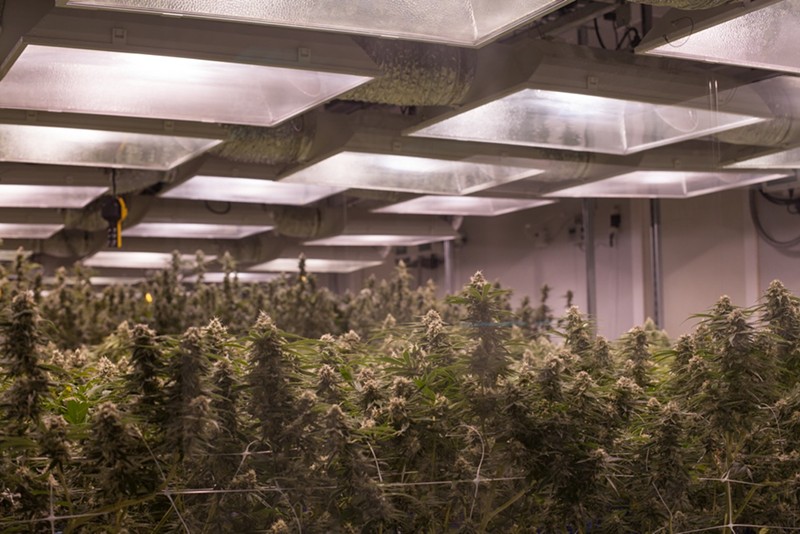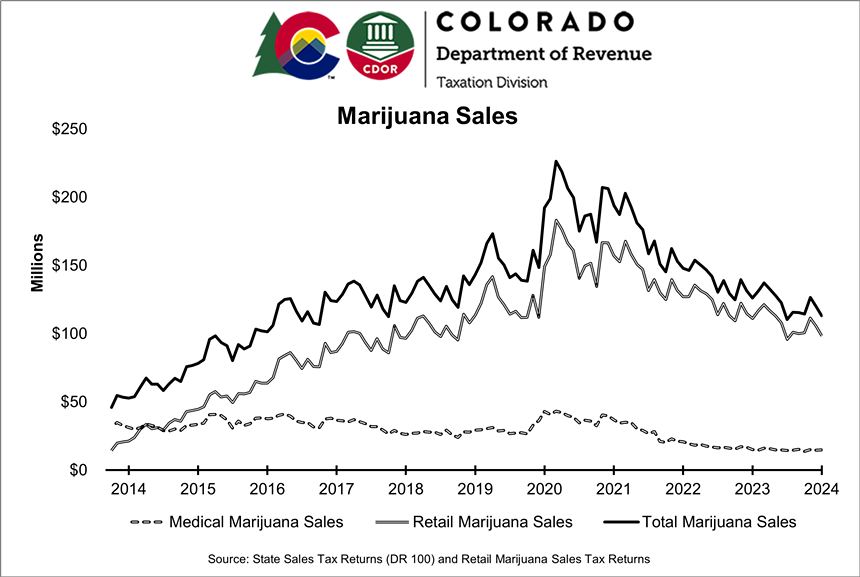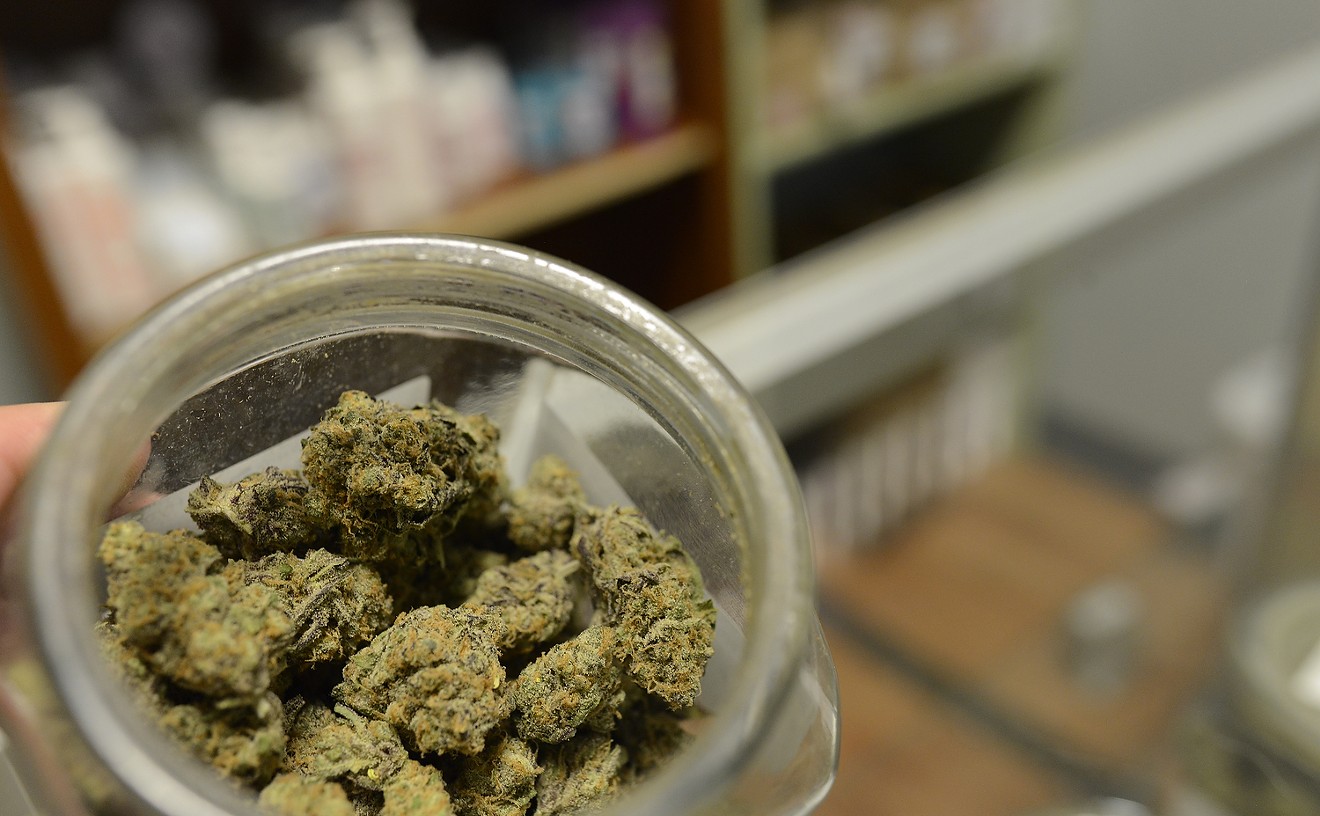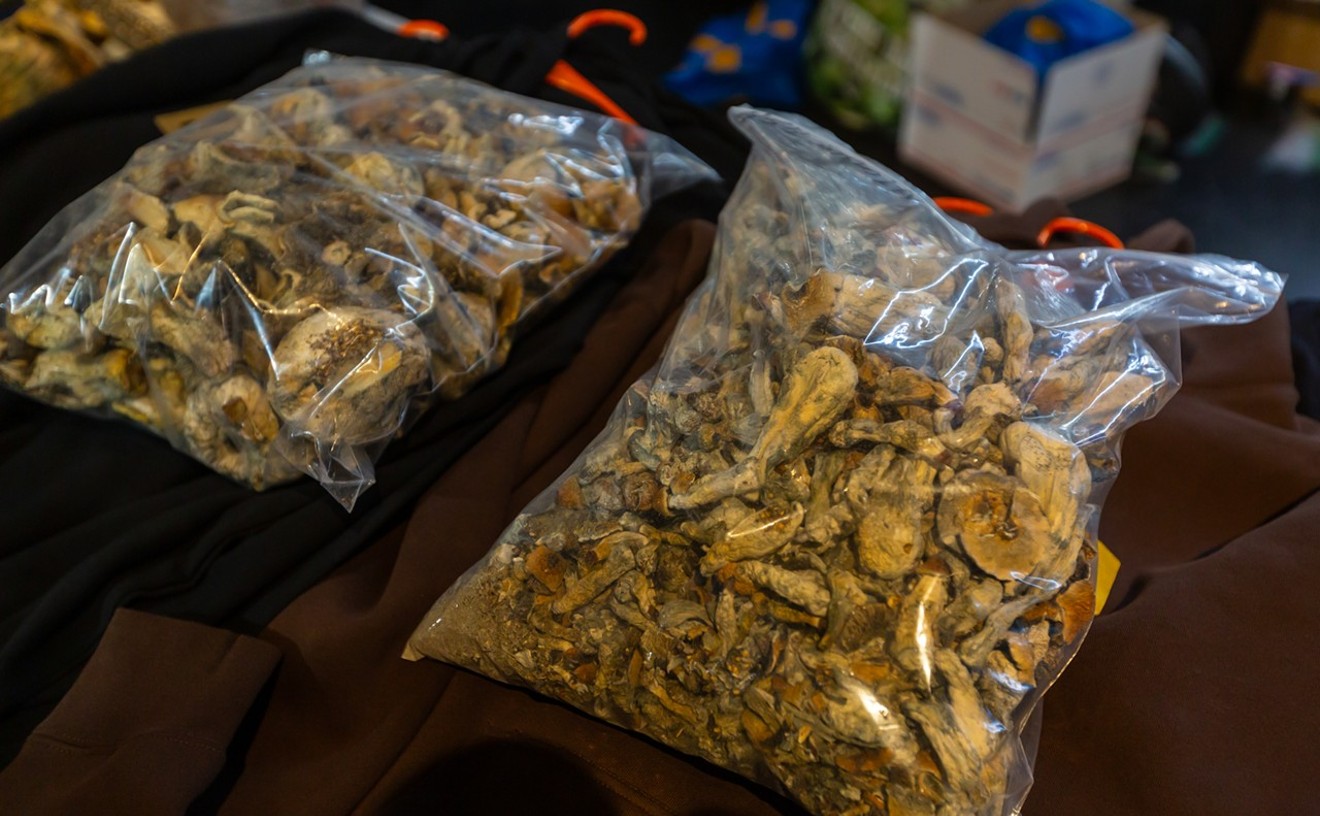The state Marijuana Enforcement Division sent a memo to business owners on August 2 outlining new application and renewal fees, which were effectively doubled to "accommodate the requirements" of a new law stretching licensing renewal periods from one year to two. The fees, considered "emergency rules," took effect five days later.
According to the MED, doubling the fees was necessary "to cover the workload involved" for the new two-year period. An additional 5 percent increase was added to account for annual inflation.
This comes after the MED raised licensing costs by around 8 percent last year to balance inflation and budgeting shortages.
Marijuana business owners say they expected fees to go up after Senate Bill 24-076 was approved by lawmakers earlier this year — but not by this much, or so quickly.
"I don't think the financial aspect of it was explained completely, or that well. ... You're doing less of the work, so the fee shouldn't increase," says Jarell Wall, co-owner of pre-rolled blunt brand Gentleman Quinn's. "We're now in a place where we don't know if fees will increase in perpetuity, based on the amount of folks going out of business. Because when folks go out of business, the MED is losing money."
Wall's licensing renewal check is due in September, he says, as are checks from the two other co-founders of Gentleman Quinn's. Instead of paying around $550 as they previously had, Wall estimates that each of them will have to pay around $1,170, and that doesn't count the local licensing fees they pay to the City of Denver, which amounts to around $5,000 for the entire business.
Falling Marijuana Sales, Higher Business Fees
Colorado's marijuana watchdog office has received operational money from the state legislature in the past, but the majority of MED funding is currently sourced from licensing fees and fines on dispensaries, growing operations and other legal pot businesses. The state's marijuana industry has been in a sustained recession since 2021, however, with a 31 percent drop in dispensary sales from 2021 to 2023. According to MED sales figures, 2024 is on pace to see another year-over-year drop, too.According to the Marijuana Industry Group, a Colorado-based trade organization that pushed for the bill, licensing fees will rise by as much as 265 percent for new applicants and 110 percent for renewing businesses. MIG executive director Truman Bradley says that despite expectations of a jump in fees, he was surprised by the new amounts.
"My heart dropped when I saw the new MED fees going up with a 265 percent increase on new licenses and 110 percent increase on renewals. As the highest-taxed industry in the entire state, we can no longer stomach fee increases and further regulatory burdens," Bradley says in a statement. "If lawmakers and regulators want to have a regulated cannabis industry at all, they need to immediately make major changes to the laws, regulations, and fees that are crushing Colorado cannabis workers. These fee increases come at a time when marijuana small businesses truly have nothing left to give."
Pointing to a 2023 report by recruiting firm Vangst, Bradley believes that over 10,000 jobs in Colorado's marijuana industry have been cut since 2022. According to MED data, registered recreational marijuana cultivations have dropped by more than 30 percent from August 2022 to August of this year, going from 807 to 562. He and marijuana business owners fear that people already struggling to make ends meet could be hit hard by the new format.
"Everybody thought fees were going up. We expected to pay something like a 50 percent increase, and we could all save a little bit. The idea is if they're doing renewals once every two years now, then it's not the same amount of work. Of course, they're not going to increase it by 10 percent, but to double it?" says Chris Kaiser, owner of southern Colorado cultivation Bubba's Kush. "Now everybody has to fork over more money. ... It's tying up more money and locking in revenue for businesses that are closer to shutting down."
The MED says business owners attending a stakeholder meeting on August 1 were notified of looming licensing fee increases, but Wall says those discussions took place "at the end of the meeting, right before it was cut off." Still, the proponents of SB 076 were notified of the department's intentions earlier this year in the bill's fiscal note, which stated, “The bill is anticipated to double all fees collected by MED,” according to MED communications manager Heather Draper.
But most business owners don't have time to attend legislative hearings or rulemaking meetings, contends Kaiser, who also takes issue with the 5 percent inflationary bump. According to the Common Sense Institute, Colorado's overall economic inflation was around 3.5 percent from 2023 to 2024.
Wall, an active presence at MED meetings, says he "wouldn't say there wasn't any actual committee discussion or conversations with stakeholders about why this was being done."
According to Draper, the inflationary-based bump "is consistent with the messaging provided" by the MED in previous public meetings. Because the fee hikes were part of an emergency rule adoption, the MED has 120 days from August 7 to adopt them permanently or they will expire. There will be more opportunities for public comment and dialogue about licensing fees during the division's ongoing stakeholder sessions this summer, Draper adds.
Until last year, the only increase in marijuana licensing fee costs came in 2012, when the MED created recreational marijuana licenses after the passage of Amendment 64. When fees were increased last year, the then-director of the Department of Revenue, which oversees the MED, said the department would freeze new hires. According to Draper, the MED's staff size hasn't changed since 2023, staying at 105.
Draper says this year's fee increases were adopted under emergency status because they had an earlier effective date than other sections of the new licensing law. The measure, intended to streamline cannabis industry operations, allows dispensaries to sell non-infused items for consumption, such as snacks and soft drinks (but not tobacco), and also allows the MED to track marijuana production without individual tags for each plant — a rule viewed as unnecessary, expensive and wasteful by growers — among other changes.
"The recent emergency rule announcement reflects only initial steps to implementation of Senate Bill 24-076. As the Division proceeds through the permanent rulemaking process, it will consider changes to the initially adopted emergency rules before they are adopted as permanent rules," she notes.
Wall would like to see more legislative funding for the MED, given the amount of tax revenue the pot industry has contributed to state coffers since recreational sales began in 2014: almost $2.75 billion.
Kaiser hopes to see a cap on new licensees or rules that limit saturation as dispensary sales continue to drop. He'd also like to see the MED be stricter with bigger companies that don't pay vendors or that run afoul of the state marijuana code.
"They need more bumpers in place," Kaiser says. "You shouldn't be able to renew your licenses if you have a bunch of debt with vendors and suppliers. There is nothing to protect people from bigger companies building up debt with smaller businesses."














